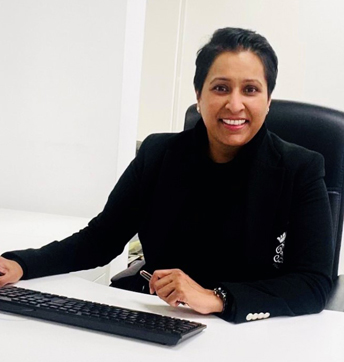We’re all aware of just how big the security industry is. We’re over half a million strong and contribute £7 billion annually to the British economy. Put that into perspective, we have more people than the armed forces and emergency services combined and have a bigger economic value than a small country. Only a brief internet search can bring up row after row of statistics that show our value. From protecting us from hackers to keeping entertainment venues safe and secure, our people, often unseen or unheard, play an important role in everyone’s lives. They consist of people of every identity, characteristic and background. Yet when we ask someone what a security sector employee looks like … they’ll invariably say: a heterosexual white man, writes Satia Rai, pictured, Security Services Director at Woodwill Security Services and a member of the Security Institute’s Inclusive Security Special Interest Group (SIG), launched last summer.
Organisations like the National Black Police Association, or the taking part in pride parades of soldiers, sailors and airmen show just how far our colleagues, in similar industries, have come in building an inclusive culture, in which free self- expression is built into their workplace culture. When you look at our own industry however, we pale in comparison. We can’t even get ballpark figures as to how many Women, LGBTQ or Ethnic Minorities actually work in our sector. Somethings got to change, otherwise we risk being left behind by history, becoming an industry that fails to appeal to some of the brightest and best talent.
To start I’ll admit, I have a vested interest in this, for a woman of colour who is LGBTQ, the more inclusive the workplace, the easier my life will be. I’ve worked in the sector for nearly 25 years and I understand what it means for an individual to minimise or hide aspects of their true self in the workplace for fear of not being fully embraced. In my early years as a professional, I personally faced similar challenges in the workplace. But my journey has given me the courage to not only be myself, but to share my experiences and passion for advocacy to help organisations and individuals contribute to their fullest potential.
It’s the year 2021, we live and work the UK, one of the most inclusive and open-minded countries on the planet. Yet people are suffering in our industry because of our un-inclusive culture and it’s got to change, fast. An inclusive culture begins when we recognise difference and not just accept it but embrace it. We need to see the world from other people’s perspectives and really think about we can do to make changes for the better.
This can be really small things personal like checking the language we use when talking with others, offering different types of social event that are not always ‘down the pub’ or taking an active interest in our colleagues of differing identities’ lives.
It can also take the form of big policy and workplace changes like blind cv recruitment, unconscious bias training, flexible parental leave or creating workplace advocacy groups. There’s plenty we can be doing to bring about the active change we need.
Unless we wholeheartedly embrace diversity and inclusivity, the best-case scenario we can look forward to for the future of our industry is stagnation. Why would anyone want to work in an industry if they do not feel valued? At the same time why would we as an industry want to restrict our potential resource pool to only certain people with certain characteristics or backgrounds. It doesn’t make sense – either ethically or financially.
The jobs market has never been as flexible and open as it is today. Careers for life are no longer the norm. Retraining has never been easier and with transferable skills, industry hopping is common. The grave risks we face are losing existing employees who simply don’t feel valued because of who they are and failure to attract the next generation of people who will lead us forward into future success. We have to act now to stop this in its tracks.
There’s an old phrase that says ‘nothing changes if nothing changes’ and that is so true when it comes to the security industry workplace. When we lack differing perspectives, when we fail to listen to different points of view, we only get the same responses. A truly inclusive culture is one which recognises that the lived experiences of others can bring something different and new to the table. It is one that not only actively looks for this type of input but also fully embraces it.
This is as true as for the casual chat around the canteen table as it is for the most serious of high-level board room discussions. Remember, innovation is built on different perspectives, of different people tackling the same problem with different approaches. The pace of change in the world is only getting faster, without the diversity of thought brought by those of different lived experiences, we’re going into it already at a huge disadvantage.
As the world moves forwards, it’s slowly becoming a more diverse and inclusive place. We now have the opportunity to move forward with it. Through small changes in behaviour and improved workplace policies and practices, we can join the march of progress and truly create a culture in the security industry in which everyone, regardless of their background or identity can be themselves and thrive.










